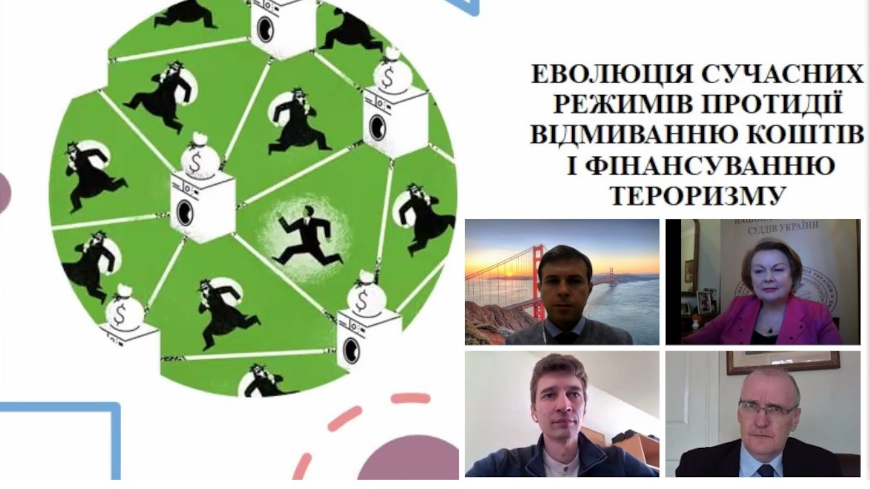In continuation of previous capacity building efforts and series of training activities for Ukrainian judges in the field of anti-money laundering and countering the financing of terrorism, the Council of Europe in cooperation with the National School of Judges of Ukraine organised specialised online training “Countering Terrorist Financing: Judicial Aspects” for local Court judges.
In order to address the complicated subject of terrorist financing, the Council of Europe provided international expertise from judges of the High Court of Ireland and the district court of Rotterdam (Netherlands), and also invited the Financial Investigation Unit (FIU) as well as the Security Service of Ukraine to delegate their own experts to contribute to the training by sharing their knowledge and experience in the matter from the national point of view. This combination of international and national expertise, besides enriching the technical content of the training, also served to enhance the awareness of Ukrainian judges on the role of key national agencies and promote their cooperation in the fight against terrorist financing.
The trainers guided 25 Ukrainian judges through basic concepts around terrorist financing, related international standards and their impact on national policy-making, as well as Ukraine’s international commitments to countering terrorist financing. Participants had a close look at the national anti-money laundering and countering terrorist financing (AML/CFT) system and the particular role of the Financial Investigation Unit in it. An outline of the process of detection and investigation of terrorist financing, complemented by presentation of the national case law in this area, provided essential elements to the overall understanding of the current efforts to address terrorist financing in Ukraine. Due attention was also paid to important judicial aspects such as the standard of proof, evaluation of evidence and motivation of court decisions in terrorist financing cases.
The constructive discussions and active engagement of participants throughout the training reconfirmed the relevance and importance of the subject. Moreover, it clearly demonstrated the aspiration of the Ukrainian judges to develop their knowledge and skills related to terrorist financing, and thus paved the way for future elaboration of this area of work together with the national partners in Ukraine.
This activity was organised within the framework of the Project on “Strengthening measures to counter money laundering and the financing of terrorism in Ukraine”, funded by the European Union and the Council of Europe and implemented by the Council of Europe in their Partnership for Good Governance II.




